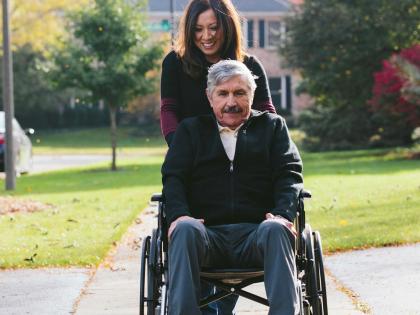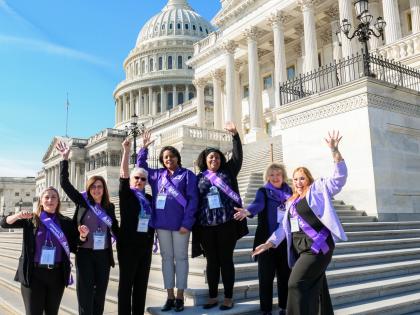Oklahoma State Alzheimer’s Plan Overview

In May 2008, the Task Force on the Effect of Alzheimer’s Disease was established pursuant to Senate Bill 2186. Tasked with examining the impact of Alzheimer’s disease and forming a plan of action within the state, the Task Force included representatives from the private sector, community organizations, and state agencies as well as caregivers, state legislators, and individuals living with Alzheimer's. In September 2009, the Final Report of the Task Force on the Effect of Alzheimer’s Disease in Oklahoma was published. In 2015, Governor Mary Fallin issued Executive Order 2015-32 to authorize an update to the state plan. The Oklahoma Alzheimer’s State Plan 2016 was published in February 2016. In 2023, the Oklahoma State Health Department, in partnership with a coalition of stakeholders, published an update to the state Alzheimer’s plan for 2023-2027. The updated state plan details four goal areas for advancing brain health across the state.
Oklahoma 2026 Policy Priorities

Establish a Dementia Services Coordinator Position
Oklahoma is home to more than 70,000 individuals living with Alzheimer’s and their 108,000 unpaid caregivers. As the population living with dementia continues to grow, coordination between state agencies that administer programs for people living with dementia and their caregivers is crucial. The Alzheimer’s Association is calling on state lawmakers to pass legislation establishing a full-time dementia coordinator position within the Department of Health. This state government position will coordinate Oklahoma’s response to dementia by assessing the implementation of the Alzheimer’s State plan, identifying gaps in existing services and programs, and enhancing public awareness throughout the state.

Medicaid Reimbursement for Care Planning and Cognitive Assessments
Early intervention can provide individuals living with dementia time to plan for the future, adopt lifestyle changes, participate in clinical trials, and live more fully with a higher quality of life for as long as possible. Medicare beneficiaries in Oklahoma have access to a billing code that covers cognitive assessments and care planning. However, those on Medicaid do not have access to this critical service. The Alzheimer’s Association is calling on state lawmakers to support legislation to add CPT Code 99483 to the Oklahoma Health Authority Plan, which would reimburse providers for care planning and cognitive assessments for patients not enrolled in Medicare.
Sign Up to Learn About Advocacy Opportunities in Oklahoma

Find My Chapter
Together, we’re making an impact. Find an Alzheimer’s Association chapter in your community for more ways to engage.
Contact Us
State Affairs Contact: Cameron Decker
Phone: 405.279.9087
Email: cdecker@alz.org
70,500
people living with Alzheimer’s in Oklahoma
108,000
Oklahomans are providing unpaid care
$663 Million
Medicaid cost of caring for people living with Alzheimer’s (2025)
152.8%
increase in Alzheimer’s deaths 2000-2022
18%
in hospice with a primary diagnosis of dementia
313.3%
increase of geriatricians in Oklahoma needed to meet the demand in 2050
Resources to Drive Change in Oklahoma
The following resources developed by AIM and the Alzheimer’s Association will help you learn more about the issues impacting people living with Alzheimer’s and their caregivers, how Oklahoma policymakers are addressing these gaps, and how you can help drive change.